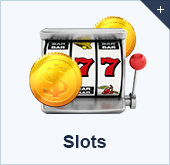The Best Roulette Strategies & Systems

Playing roulette is all down to luck, however there are some systems that claim to give the player an edge over the house. Some of these systems are incredibly well-known, while others are only known by the most experienced players of the game. While none of them will absolutely guarantee a player profits – despite often claiming that they can – they can still be useful. Especially if you are new to roulette, a betting system can be great to learn and use when starting out. While nothing in gambling is a sure thing, having a roulette strategy can better ensure that your money lasts (and potentially multiplies) without you just blindly throwing chips out on the table and praying for a big win.
We have compiled some of the most popular roulette betting systems below for you to use. Note that they range from slow-play approaches to the much more bold "go big or home" strategies like the Martingale. Choose a system that makes sense for your gambling budget and have fun.
The Martingale System
Playing roulette is all down to luck, however there are some systems that claim to give the player an edge over the house.
The Martingale System is the best known of all roulette systems, and is favoured by the majority of those looking to gain an edge over a casino. It is a reasonably simple system to learn and, like the majority of other roulette systems, uses a betting progression strategy. This essentially means that you cover any losses from the previous bets with the potential winnings of the next one. It’s been in use since the 18th century, and was the original betting strategy devised for roulette.
So, how does it work? Well, it’s pretty much as stated above. It relies on players always betting on 1:1 selections, namely red/black or odd/even, and is a pretty obvious one for casinos to spot. So, let’s assume you place C$10 on red, and the bet is a losing one. You would then place C$20 on an even money bet next, in the knowledge that, should this bet win, you will have covered your previous losses. You then keep on doubling your bet until you win, before then reverting back to your initial bet size.
The obvious flaw with the Martingale system is that if you were to hit a long unlucky streak, the amount you are supposed to bet could get out of hand and exceed your personal betting limit quickly. For this reason, it's much wiser to use the Martingale system for short roulette sessions (like an hour), as the longer you play the more the house edge is going to add up and become a major factor against you.
The Labouchere Roulette Strategy (also called the Cancellation Strategy)

This is another incredibly popular roulette strategy, second only in popularity to the Martingale. It is also quite similar to the Martingale, as it is based on progressive bets, however the system is slightly more complicated at first. As with many things though, you will understand it well once you have practiced with it for a while. You might know this system by a different name, as it is also often referred to as the Split Martingale or the Cancellation System.
So, let’s explain how this roulette betting system works. Firstly, you’ll need to decide how much you want to win – to keep things simple, we’ll assume that this is C$100. You then break this C$100 down into units and, once again to keep things simple, we’ll say that the unit is C$10, meaning that you need to win ten of these units to hit your target. You then break the number of units you need to win down into a smaller sequence of numbers, such as 1 2 2 3 2, ensuring that the total of these numbers is equal to the total number of units you need to win, which in this case is ten (10 x C$10 = C$100).
Then you will start placing bets, always ensuring that your bets have odds of 1:1. The way you place these bets is important though, as you’re about to find out. To decide on the amount to bet, you add the first and last numbers together from your list, and then multiply it by your unit value. So, in the above example, this would mean using the 1 and the 2 from either end of the sequence, and then multiplying their total by C$10. Therefore, your first bet would be C$30. If this bet is a winner, you will then be able to cross both numbers off your list – the goal is to have them all crossed off, which will signal that you’ve won the C$100 you wanted. You would then use the next pair of numbers (2 and 3), using the same strategy. You can then use the final remaining number on its own.
But what if a bet is not successful? Well, in this case, the number of lost units would be added to the end of your list. So, if you lost that initial bet of C$30, you would not cross off any numbers, and would instead add 3 to your list, before then continuing in the same way as before.
Like Martingale, following this system requires you to make those even-money, outside bets and to increase your bet size when you lose. The difference is that the Cancellation system aims to recoup your losses in several spins and smaller wins as opposed to in one fell swoop. Sticking to this strategy (and not alternating which outside space you are betting on) means that every win you have compensates for two losses, so really you just need to hit 33% of your bets to come out ahead.
The D'Alembert Strategy

Named for a French mathematician, the D'Almebert strategy is one of the more conservative roulette betting systems out there. The system requires you to play only the outside bets: red/black, odd/even, and 1-18/19-36. To begin, simply place a chip on one of these outside options. If you win, repeat. If you lose, bet the same space but add one chip to your bet. From there, remove a chip with each win until you are back down to your original bet size.
While it's definitely not a get-rich-quick strategy, the basic idea is that the win percentage on the outside bets is going to balance out over the long run. Losing streaks are inevitable from time to time in betting, and this strategy manages to quell them better than most other systems and keep them from getting out of hand. That said, while you may find that you are able to play a long time using this strategy, it can be hard to dig yourself out of a hole should you find yourself in one.
The Fibonacci
The Fibonacci sequence actually hails from mathematics, however some keen gamblers released that its principles could be applied to gambling, and particularly to roulette. It is based on a set series of numbers, and players will have to memorize these numbers if they are going to use them at a casino – although online roulette players have the advantage of being able to have them written down next to them!
In order to start using this roulette system, you first have to choose a set amount you are going to bet. To keep things simple, we’ll say that the set amount is going to be C$10. You will then have to have a copy of the Fibonacci sequence to hand, however to get you started, the first ten numbers in the sequence are: 1 1 2 3 5 8 13 21 34 55. Each of these numbers is then multiplied by your standard bet amount, therefore meaning that the first bet you make in this example is a C$10 one. It is also important to remember that it’s best to make even money bets when using this system.
You then work your way along the numbers in the following way: if you win a bet, you fall back two places in the sequence and continue betting, however if you lose a bet, you move to the next number in the sequence. So, let’s assume that you are up to the fifth number in the sequence, which is five. Winning this bet would see you go back to the third number in the sequence and place a bet that is 2x your standard bet amount, however losing this bet would see you move forward to the sixth number in the sequence, and place a bet worth 8x your standard bet amount.
The Fibonacci is yet another example of a progressive roulette betting system, however the increases in bet amounts are not as steep as the Martingale. This does mean that it will take longer to recoup any losses when you use this system though. As with the Martingale – and all other progressive roulette systems – it is flawed though, as it relies on you having an unlimited amount of cash in order to guarantee that you won’t lose money.
The Legality of Roulette Systems

In the eyes of the law, there is nothing illegal about using a roulette system, as the law sees nothing wrong with a player using tactics in order to gain themselves an advantage. If you’re caught using a roulette system in a land-based casino though, the likelihood is that you’ll be kicked out pretty quickly, just as blackjack card counters are. The fact that roulette systems are pretty obvious means that it doesn’t take much for an online casino to spot someone who is using a system.
Online players have a significant advantage over land-based casino players though, as there are no actual dealers around to spot any suspicious betting patterns – unless you are playing a live dealer roulette game. Therefore, online players can generally keep on using a roulette system for a lot longer than those in land-based casinos. If you use a system for too long though, and are successful when using it, an online casino could ban you from the site. This doesn’t happen very often though.
Is Using a Roulette System Worth It?
This is perhaps the most important question of all, and the answer really depends on one thing: your bankroll. If you are a player with a large bankroll, using a roulette system could be something to consider, as you’ll be able to cope when the bets start to get quite high. If you have a smaller bankroll, you are likely to find that your money runs out pretty quickly though, therefore meaning that using a roulette system would be pretty pointless. So, if you have a smaller bankroll, it’s best to simply accept that roulette comes down to luck and enjoy your time at the table.
-
 Online Poker
Play real money online poker cash games and tournaments 24/7.
Online Poker
Play real money online poker cash games and tournaments 24/7.
-
 Sports Betting
Discover the top bookies to place your online sports bets with.
Sports Betting
Discover the top bookies to place your online sports bets with.
-
 Slots
Canadian slots players win huge progressive jackpots and play newest games.
Slots
Canadian slots players win huge progressive jackpots and play newest games.
-
 Online Casinos
Canadian players enjoy your favourite games at our top online casino.
Online Casinos
Canadian players enjoy your favourite games at our top online casino.




